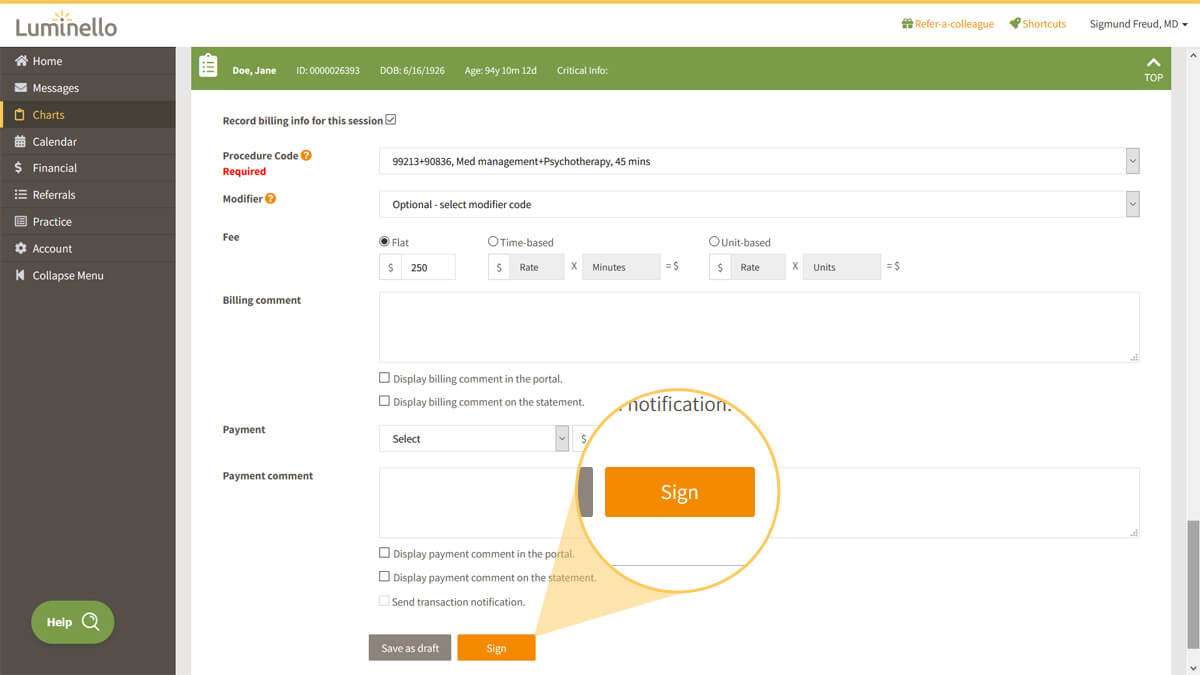Autism is a developmental disorder that affects communication and social interaction. Children with autism often receive a variety of services, including early intervention, nutritional therapy, occupational therapy and play therapy. Psychologists are usually involved from the beginning, providing diagnostic services and treatment to children with autism. Working as a psychologist with autistic children can be a rewarding and fulfilling career choice.
What You’ll Do
Psychologists provide a range of services to children with autism. Children who are thought to have autism are assessed by a multidisciplinary team generally consisting of a pediatrician, pediatric neurologist, developmental pediatrician, child psychiatrist or psychologist specializing in diagnosing autism, or licensed professional who can medically diagnosis autism. As a psychologist, you’ll not only be a part of the multidisciplinary team, you’ll also provide a service known as Applied Behavior Analysis, or ABA. This type of treatment involves the use of various techniques and principles to help bring about positive and beneficial changes in behavior.
Education
Clinical psychologists who work with children with autism need to have a doctoral degree in psychology — either a Ph.D. or a Psy.D. You can also work with autistic children if you obtain a master’s degree and specialize in applied behavior analysis. After earning a master’s degree or a doctoral degree, you are eligible for certification as a Board Certified Behavioral Analyst, or BCBA, with the Behavior Analysis Certification Board. Doctoral level candidates are eligible for doctoral-level credential, or BCBA-D. Bachelor’s level candidates may be eligible for certification as a Board Certified Assistant Behavioral Analyst, or BCABA, if your bachelor’s degree is in behavior analysis or another field approved by the certifying organization. They may also be referred to as psychologists, although the term is generally reserved for master’s and doctoral level practitioners.
BCABA Certification Requirements
Certification requirements for the BCABA credential involves submitting verification that you have obtained at least a bachelor’s degree in applied behavior analysis or other natural science, education, human services, engineering, medicine or a field related to behavior analysis and approved by the BACB. Additionally, you must show that you have completed 135 classroom hours of instruction in specific content fields, including ethics, behavioral assessment and behavioral change procedures, and submit proof of 1,000 hours of supervised independent fieldwork in behavior analysis.
BCBA Certification Requirements
There are three options you can choose to become a certified behavior analyst. All candidates must have obtained a minimum of a master’s degree in behavior analysis or other natural science, education, human services, engineering, medicine or a field related to behavior analysis and approved by the BACB. All master’s level candidates must also show proof of completion of at least 1,500 hours of supervised experience in behavior analysis. The coursework option of certification involves submitting proof of completion of 225 hours of graduate level instruction in specific content areas including ethics, experimental evaluation of interventions and behavioral change procedures. The college teaching option involves submitting proof of completing a one-academic-year, full-time faculty appointment at a college or university teaching applied behavior analysis. The doctoral option, which confers an additional credential signifying that you are certified on the doctoral level, requires that your doctoral degree was obtained at least 10 years prior to your application for certification. In addition, you must show proof that you have at least 10 years’ postdoctoral experience in behavior analysis.
Clinical psychologists at CARD offer evaluation and treatment services that focus on understanding and addressing the social, emotional and behavioral needs of children with autism spectrum disorders (ASD) and their families. We offer services to individuals ranging in age from infancy to adolescence.
Our faculty and staff psychologists are licensed by the Maryland Board of Examiners of Psychologists. Additionally, psychology associates and post-doctoral psychology residents work under the supervision of licensed psychologists in accordance with state regulations.
Services We Offer:
ASD Diagnostic Evaluations
Our clinical psychologists provide diagnostic evaluations to assess children for ASD. Diagnosis is typically determined by reviewing a child’s history through parent interviews and administration of the Autism Diagnostic Observation Schedule (ADOS), a standardized tool for diagnosing ASD. Parent feedback is a critical component of the evaluation and includes a discussion of the appropriate diagnoses, psychoeducation regarding ASD and other disorders, and further evaluation and treatment recommendations.
Treatment Services
Clinical psychologists provide a variety of therapeutic services to children with ASD and their families, including:
- Individual Therapy
Individual therapy services typically focus on helping children and adolescents with ASD with anger management, anxiety, depression, and coping with ASD as they grow. Our psychologists frequently use strategies based in behavioral and cognitive behavioral therapy. Parents and other caregivers are active participants and receive psychoeducation so they can support and reinforce their child’s use of therapeutic strategies at home, in school or in the community. Our psychologists also offer services focused on addressing behavioral concerns in young child through parent training.
- Group Therapy
Our clinical psychologists lead groups that focus on improving social skills among school-age children and adolescents. We also offer group sessions that emphasize how to manage emotional distress, such as anxiety. Groups employ didactic, experiential and interpersonal strategies, as well as parent training.
Professional Training in Psychology:
CARD psychologists provide supervision to post-doctoral psychology residents, in accordance with state regulations. For more information about available training opportunities at CARD, click here.
What is a psychologist?
Psychologists are health professionals who study the human mind – our mental health, emotions, intelligence, motivations and behaviours. They use psychotherapy (sometimes called cognitive therapy or ‘talk’ therapy) to help people find solutions to relationships, learning, performance in a range of areas and life’s challenges.
What is the difference between a psychologist and a psychiatrist?
Psychologists are not medically trained and cannot prescribe medications. Psychiatrists are medical doctors who are able to prescribe medications. Both psychologists and psychiatrists diagnose and treat mental illnesses and conditions.

How can psychologists help people with autism?
Some psychologists have an interest and expertise in autism, gained through additional study and clinical experience.
A General Practitioner (GP) or other health professional may refer a person to a Psychologist if they suspect that the person has autism, or if they have concerns about the person’s mental health. Self-referrals can also be made to a Psychologist.
Specifically, Psychologists can assist people with autism, or who are suspected of having autism, with the following professional services:

How do psychologists provide their services?
Psychologists generally conduct in-clinic, individualised assessments, and then recommend a series of follow up counselling and therapy sessions. Some psychologists can also do home visits, kindergarten and child care visits, school visits, or work visits.
Where do autism psychologists practice?
Many psychologists work in private practice, either in their own clinics or as part of a multi-disciplinary team of health professionals. They may also be employed by schools, public and private hospitals and community health services. To find out more, or to get a referral speak with your GP, or visit our support and services page.
What training do psychologists undertake?
Psychology is a regulated health profession. To practice as a professional psychologist a person must:
- Complete a recognised University degree qualification followed by training and supervised experience (around six years).
- Register with the Psychology Board of Australia and Australian Health Practitioner Regulation Agency (AHPRA).
- Adhere to the Australian Psychological Society Code of Ethics.
- Complete continuing professional development and meet all requirements of the Psychology Board of Australia.
- To make autism diagnostic assessments, they may also need to complete additional professional development requirements.

What does a psychologist cost?
The fee at which a service is set is at the discretion of the individual psychologist so it is important to discuss this with the psychologist or clinic manager before booking an appointment.
Psychology is an approved service under the NDIS. For more information about the funding options that may be available to you please visit our financial services page.
Further information
For more information about psychology, please visit the Australian Psychological Society website, or the Psychology Board of Australia website.
Autism spectrum disorder (autism) is a neurological developmental disorder which often presents and manifests in early childhood, affecting the ability of the individual to learn, behave, communicate and interact with their social surroundings. In the United Kingdom, it is estimated that there at least 700,000 individuals with autism, which is an estimated prevalence of around 1 in 100 people. The differences in perception and understanding of the world, social surroundings and their sense of selves is different to individuals without autism disorders, and this often leads to feelings of isolation and misunderstanding from those around them. Clinical psychologists aid in the diagnosis of autism which in turn may lead to greater access to services and support, and help families come to terms with behavioural, social or cognitive difficulties which affect the individual.
Autism spectrum disorders have long been diagnosed in the literature in psychology manuals and journals, yet often given specific names depending on the aspect of cognitive or social functioning which was affected. In 2019, the term autism spectrum disorders (ASD) is a catch all term for these other conditions which may have been reclassified or taken out of use. In younger individuals, developmental issues such as difficulty in social situations, social isolation, persistent patterns of behaviour, resistance to changes in routine and extreme interest in topics/hobbies are often the first identified symptoms of the condition.
Clinical psychologists are involved in the diagnosis of autism, often through a skilled and careful evaluation of clinical history, behavioural patterns and even interviews with family members and friends to ascertain valuable qualitative information about the individual’s interests, hobbies, behaviours and intolerances. The diagnosis of autism in childhood can prove difficult, particularly in younger individuals who have not developed the capacity for speech and autonomy, but may express symptoms of social and developmental difficulty. Some sources suggest it may take up to 3-4 years to definitively diagnose autism as it may take some time to exclude other conditions and gather enough qualitative evidence to make a diagnosis. Although there is thought to be a genetic and environmental component, there are no clinical biomarkers or blood tests available to point towards diagnosis.
The diagnosis of autism by clinical psychologists is often performed with special types of interviewing to ascertain the individual’s perspective of the world, their cognitive capacity and their perspectives on social functioning. Other interviews with supplementary information of caregivers, parents, teachers and friends may be used to ask more direct questions around the interests and abilities of the individual academically and socially. In patients with more cognitive disability, tests of language, speech and articulation may be used, but these all take place in environments which are more conducive to the individual feeling as relaxed and comfortable as possible as to not exacerbate any symptoms they may present. Once thorough examination and a large amount of qualitative data has been obtained, the role of the clinical psychologists is to evaluate the individuals social, cognitive and behavioural strengths, as well as highlight areas which, with intervention, may help in their overall quality of life.
Although autism is a lifelong condition, individuals who receive early interventions, support and therapies often have a much better outcome in the earlier stages of learning and social functioning development. The use of cognitive behavioural therapies and autism-specific therapies such as applied-behaviour analysis can aid in identifying and reducing the prevalence of adverse behaviours by empowering and encouraging the individual to interact more with their healthy, positive behaviours. Often, a key aspect of therapy for autistic individuals is the advocacy to find activities which aid in personal development and provide ambition – these often arise as musical, academic, artistic or environmental passions which can provide life changing influences to individuals with autism. Individuals who are diagnosed at a younger age may also be given ‘floor time’ therapy, whereby the individual’s caregivers and parents are encouraged to interact and play, whilst prompting the individual with increasingly complex commands and requests. The initiation of therapies in an environment that is familiar and comfortable to the individual has a large impact on how well the support therapies work, and empowering the individual with close family members aids in social processing. Parents who interact with floor time therapy often gain a better understanding of their child’s behaviour and actions, and may improve their ability to see the world from their child’s perspective, gaining a better outlook on their child’s behaviour. Once a diagnosis has been made through a clinical psychologist, referrals to other secondary and tertiary caregivers occurs through schools, support groups and counsellors who can be invaluable lifelines to families, carers and individuals who know or suffer with autism.
Autism is a highly individual condition that affects individuals in a variety of ways, and as such the approach to therapies is often tailored to the individual. For example, one individual may have a propensity towards social anxiety in situations, therefore their therapy may be aimed more around counselling and behavioural therapy to address the distress and anxious thinking. Likewise, other non-therapeutic directed activities such as hobbies and personal time will empower the individual and may give confidence around social interactions to build their resilience and social ‘wealth’. Other individuals may have certain behaviours around sleep, food and self-care which might be approached in a different way by giving small exposure to these behaviours and monitoring the individual’s response with the family members involved. Indeed, the therapies for the individual are almost as important to the families of the individual who may require counselling and support to provide them with emotional and social resources by which to support their child or family member with autism.
The role of clinical psychologists in the treatment of autism is fundamental to getting a diagnosis and being signposted to best areas of support for the individual and family members. The therapeutic options are often centred around social and behavioural therapies through counselling and other specific techniques. A fundamental part of therapy for autistic individuals is the uptake of activities, hobbies and passions which may serve as an outlet for them and their families when coping with difficult issues. Getting a diagnosis is fundamental to the treatment and support of the individual, and allowing the individual to lead a happy, fulfilling life alongside their family and loved ones.




